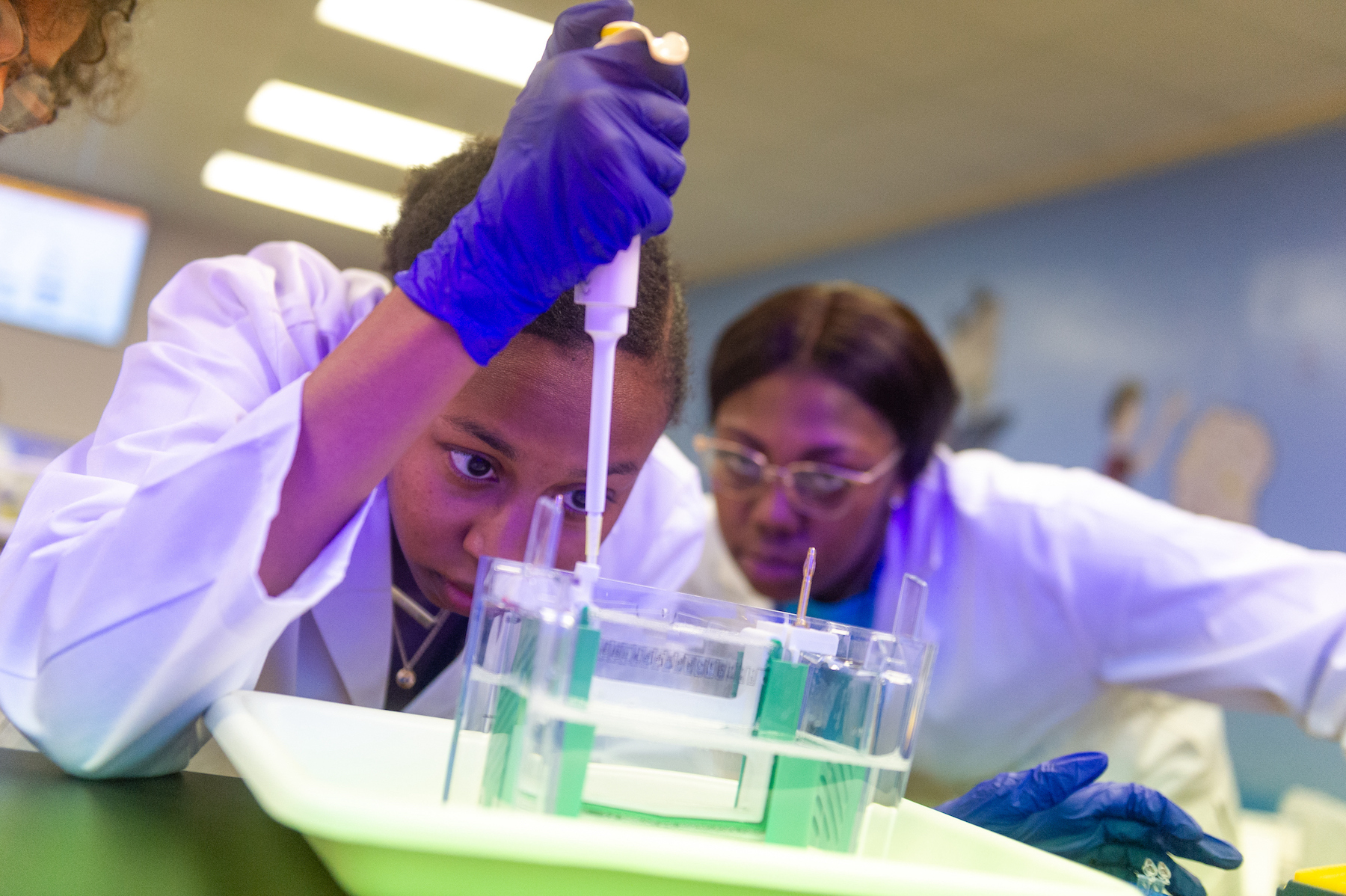Details
Mississippi INBRE is now offering no-cost STEM lesson modules for PUI faculty across the state of Mississippi. Previously only available to K-8 teachers, these lesson modules are an excellent opportunity for STEM faculty to expand their curriculum through standards-based lessons taught by University of Southern Mississippi STEM Education professors.
Lesson modules are taught via online video, and applicants will receive a free classroom supply kit customized to the lesson module chosen. Browse our various modules below:
Curriculum Modules at a Glance
| Kit name | Model organism and number of protocols | Number of lessons* in a module | Expiration | Ordering | Additional equipment | Allergy warning |
|---|---|---|---|---|---|---|
| Bacterial art | Model organisms:Recombinant strains of Escherichia coli which expresses Green Fluorescent, ChromoBlue, ChromoPurple and ChromoPink proteins. |
| INBRE | Refrigerator + 4°C, Incubator + 37°C, Microwave | Ampicillin and penicillin type antibiotics | |
| Bactograph** | Model organism:Recombinant Escherichia coli which expresses protein from Synechocystis PCC6803 (pond scum) and senses the light. |
| 2 weeks | Your Institution*** | Refrigerator + 4°C, Incubator + 37°C, Water bath, Microwave | Ampicillin and penicillin type antibiotics |
| Antibodies | The ELISA tests for the presence of antigen (protocols I and II) or antibody (protocol III) in unknown samples. |
| INBRE | Refrigerator + 4°C, Freezer - 20°C, Incubator + 37°C, Water bath, Micropipettes | ||
| Photosynthesis and Cellular Respiration | Model organism: Scenedesmus obliquus is green unicellular algae commonly found in clean pods, lakes and rivers and is not pathogenic. |
| Before activation 3 months, after activation 2 weeks | INBRE | Refrigerator + 4°C, Freezer - 20°C, Incubator + 37°C, Compound microscope, Windowsill with sun exposure or lamp with 60–100-watt bulb | |
| Out of the Blue CRISPR | Model organism:Recombinant Escherichia coli HB101-pBRKanR |
| INBRE | Refrigerator + 4°C, Freezer - 20°C, Incubator + 37°C, Water bath, Microwave, Balance (1-10 gram range), Micropipettes | Kanamycin and spectinomycin type antibiotics | |
| Wolbachia Rodeo |
| Your Institution*** | Refrigerator + 4°C, Freezer - 20°C, Incubator + 37°C, PCR machine, Gel electrophoresis, Water bath, Microwave | |||
| Recombinant DNA Technologies | pGLO Transformation and Inquiry (protocol 1), transformation efficiency (protocol 2), and effect of ampicillin on bacterial growth (protocol 3). |
| INBRE | Refrigerator + 4°C, Freezer - 20°C, Incubator + 37°C, Water bath, Micropipettes | Ampicillin and penicillin type antibiotics |
*Fifty minutes per lesson if not specified otherwise. All modules require various preparation time, and some modules require an incubation time of 24 – 48 hrs between lessons.
**Requires signing Material Transfer Agreement (MTA) with your institution. This process may take up to 6 weeks to sign MTA before shipment.
***Kits are shipped from manufacturer for free and need to be self-ordered.
Deadlines
Please allow 2-3 months for delivery of materials. In order to enhance your curriculum for the spring, fall or summer semester, please be sure to submit your application by the deadlines below:
-
Spring- November 30
-
Fall- July 30
-
Summer- March 30
Application
Once you’ve chosen the semester and course module(s) you wish to enhance your class curriculum with, click the button below to apply now.
Think we’re missing something? Click here to submit our module request form. Be sure to include all details you think are important for our consideration.


